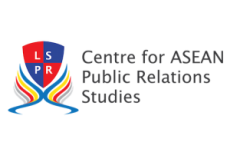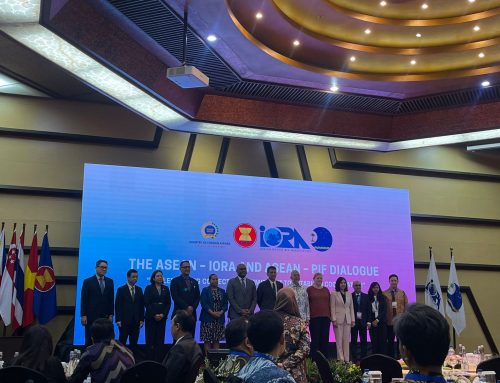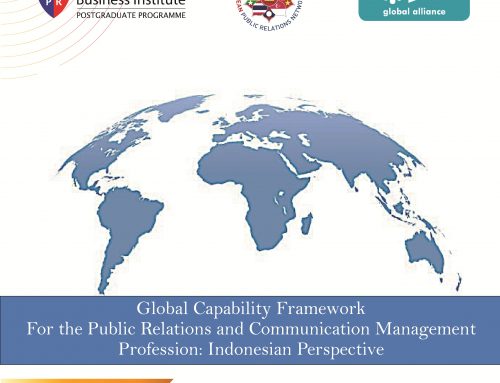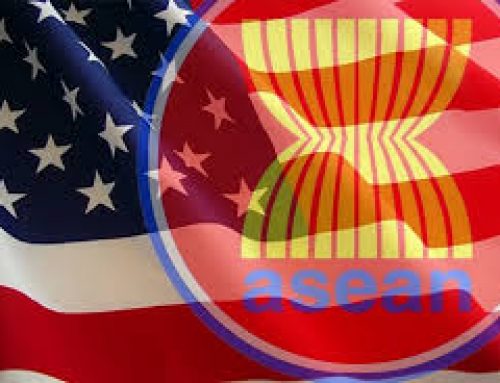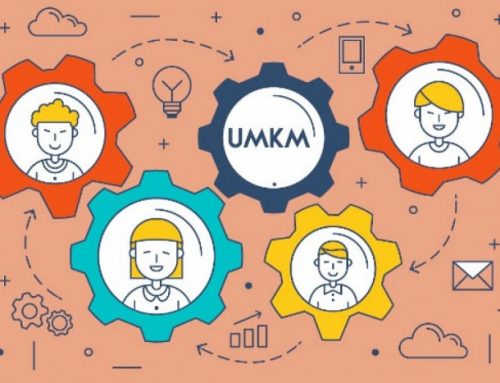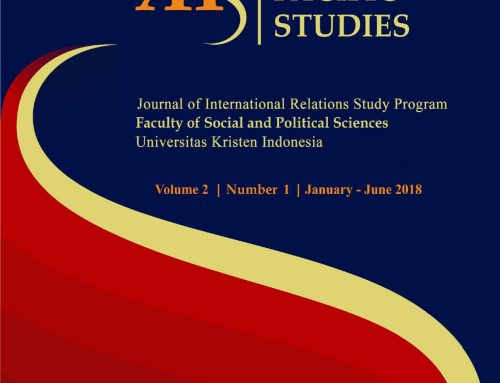Innovative Investing on Women Entrepreneur
by:
Yuliana Riana Prasetyawati, M.M.
Head of Centre for ASEAN Public Relations Studies
LSPR Communication & Business Institute
“A woman with a voice is, by definition, a strong woman”.
Wise words from Melinda Gates, perfectly describes how women need to rise their voices to remove the obstacles facing women.
The issue of women has always been an interesting topic to discuss as part of the global challenges we’re facing today. Women entrepreneur is an important topic when talking about the investing women in ASEAN. Women entrepreneurship is the main key driver of innovation, growth and employment. The Economic and Social Commision for Asia and the Pacific (ESCAP) Report (2018) states that there are 61,3 million women who own and run bussinesses in ASEAN. Entrepreneurship enables women to empowere themselves and contribute to an inclusive and sustainable development. The existence of ASEAN as one entity of the economic powers in the world with a market of 668 million people (2019) will also open up opportunities for women to develop their bussineses.
Women entrepreneur is an innovative approach in investing women’s participation in women’s economic empowerment in ASEAN. The average percentage rate of women entrepreneurs in ASEAN is around 30% – 50%. Cambodia, Vietnam and Laos are the 3 ASEAN countries with the highest level of women entepreneurs. Therefore, various promotional efforts are still needed to support women’s choices for entrepreneurship. The ASEAN Economic Community (AEC) has also increased it’s focus on supporting women’s entrepreneurship, particularly in the context of the ASEAN Strategic Action Plan for SME Development 2016-2025.
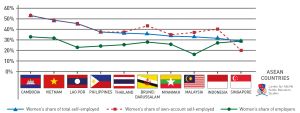
Figure 1. Share of Women Entrepreneurship in ASEAN
sumber : Fostering Women’s Entrepreneurship: Transforming Prospects, Transforming Societies, United Nations Publication, 2017
The main bussiness fields that women entrepreneurs in ASEAN are engaged in are retail trade, hotels and restaurants (see table 1). If observed in more detail, the data shows that women in Thailand prefer to be entrepreneurs in the agricultural, forestry and fisheries bussiness sectors, while women in Indonesia and Malaysia tend to like doing business in the manufacturing area. What about Singapore? Women in Singapore enjoy doing business in sectors related to health, education and social services.
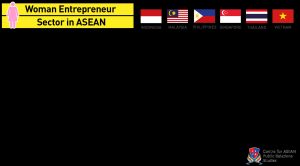
Table 1. Women Entrepreneur Sector in ASEAN
However, to unlock the full potential of women entrepreneurs in ASEAN, there are a number of cultural, employment and economic barriers that needs to be addressed. Related to cultural values, where the dominant eastern culture places the main role of women as wives and mothers. Social and cultural expectations for women’s roles in the household, as well as traditional views of suitable work for men and women. Of course this will limit the choice of women to participate in economic activities.
Access to finance is also a major and common barrier facing women entrepreneurs in Southeast Asian countries. In addition, many women entrepreneurs rely on limited knowledge of available financial tools and services. They tend to lack confidence in negotiating loans (due to financial literacy needs) and have no credit history and track record in business.
Women entrepreneurs in ASEAN have limited access to education and training resulting in a lack of knowledge and skills in starting, managing and developing businesses. Significant gaps are seen in formal knowledge of marketing, management and good business practices. Lack of knowledge and skills in the field of technology is also an obstacle for women in ASEAN to do digital-based business.
Building a network of women’s busoness centers in ASEAN can be the right solution to provide business development support to women entrepreneurs and meet the needs of women-friendly environment. This is answered by the ASEAN Women’s Entrepreneurs Network (AWEN) which is a network of business women in ASEAN, which aims to share knowledge and experiences, develop and propose initiatives to promote economic and trade activities in order to improve gender equality, empower and strengthen entrepreneurial skills for women in ASEAN. It is hoped that AWEN’s presence will help create an environment that supports women-led businesses and supports women’s entrepreneurship in ASEAN. In addition, ASEAN countried also have women’s business associations which nationally (table 1) will strengthen women’s entrepreneurial skills and help create a conducive environment for women to do business. Women’s business associations have been shown to strengthen the role of women entrepreneurs in Cambodia, Malaysia, Vietnam and Indonesia.
Tabel 2. Women Business Association in ASEAN
| No. | Country | Women Business Associations |
| 1 | INDONESIA | Indonesian Business Women’s Association (IWAPI)
|
| 2 | THAILAND | Office of Women’s Affairs and Family Development: Ministry of Social Development and Human Security
|
| 3 | PHILIPPINES | The Women’s Business Council of the Philippines |
| 4 | MALAYSIA | Associations of Women Entrepreneurs Network of Malaysia (WENA)
|
| 5 | SINGAPORE | Singapore Council of Women’s Organization (SCWO)
|
| 6 | VIETNAM | Viet Nam Women Entrepreneurs Council (VWEC)
|
| 7 | MYANMAR | Myanmar Women Entrepreneurs’ Association
|
| 8 | CAMBODIA | Cambodia Women Entrepreneurs Association (CWEA)
|
| 9 | LAO PDR | Lao Business Women’s Association
|
| 10 | BRUNEI | Women’s Business Council of Brunei Darussalam
|
Various efforts have been made by ASEAN to overcome obstacles and open opportunities for women in ASEAN to gain entrepreneurship, such as increasing financial access for women entrepreneurs through subsidized loans and other financial incentives, addressing gender-based discrimination. ASEAN has also made efforts to develop human resources in managing business ventures through the ASEAN On-line Academy.
Support for entrepreneurship is also provided by ASEAN partners. For example, Japan has contributed significantly to increasing the capacity of ASEAN SMEs, while China and Canada have established partnerships for SME development. The United States has also supported WeCreate centers in Cambodia and Vietnam which launched female-owned start-ups.
Mastery in communication technology is one of the main keys for women entrepreneurs to innovate; accessing financial services and support; access market information and opportunities; and networking with fellow entrepreneurs. In this regard, the various strategic actions and work plans of ASEAN set specific points for implementation by the ASEAN government to improve the position of women entrepreneurs, including in areas such as access to ICT and finance as well as improving business skills. The key among them is the 2016-2025 Strategic Action Plan for ASEAN SME Development.
The government has made several e-ASEAN commitments that must be obeyed. These include: 1) Ensuring that the required regional Information and Communication Technology (ICT) infrastructure is in place; 2) Expanding e-commerce and e-government facilities and services; 3) Liberalization of trade in products, services and ICT investment and 4) Reducing the digital divide, within and between ASEAN countries, as well as the gender-based digital divider.
The government can also facilitate the use of ICTs for business development and innovation for women entrepreneurs, by 1) adopting policies that support creativity and the development of innovative technologies, including protection of intellectual property rights and free cross-border data flow; 2) ensure that ICT skills development is part of the school curriculum, with special attention to access by girls; and 3) targeting ICT training opportunities for women entrepreneurs at all levels.
Beberapa women entrepreneurs di ASEAN telah berhasil memanfaatkan ICT untuk mengembangkan usaha bisnisnya. Sebagai contoh, Diajeng Lestari , women entrepreneur dari Indonesia yang berhasil mengembangkan situs e-commerce bernama Hijup yang menjual pakaian serta aksesoris untuk wanita Muslim sejak tahun 2011 dan saat ini telah merambah pasar internasional. Pada tahun 2013, Sylvia Lin dari Malaysia mendirikan Shoppr an online store aggregator app that gives users clothing recommendations. Now, Shoppr has become as a platform yang memberikan influence bagi perempuan di seluruh dunia mengenai fashion. Reese Fernandez-Ruiz is founder the largest social enterprise in the Philippines berhasil membantu perempuan kurang mampu yang tinggal di desa untuk membuat berbagai aksesoris dari kain tradisional yang kemudian dijual melalui Rags2Riches. Now, Rags2Riches, will be expanding for the first time to North America with an online shop operated in partnership with Canadian.
Several women entrepreneurs in ASEAN have successfully used ICT to develop their business ventures. For example, Diajeng Lestari, a women entrepreneur from Indonesia who has successfully developed an e-commerce called Hijup, which sells clothing and accessories for Muslim women since 2011 and is currently penetrating the international market. In 2013, Sylvia Lin from Malaysia founded the Shoppr, an online store aggregator app that gives users clothing recommendations. Now, Shoppr has become as a platform influencing women all over the world regarding fashion. Reese Fernandez-Ruiz, founder of the largest social enterprise in the Philippines, has succeeded in helping underprivileged women living in villages to make various accessories from traditional fabrics which are then sold through Rags2Riches. Now, Rags2Riches, will be expanding for the first time to North America with an online shop operated in partnership with Canada.
Prita Kemal Gani, CEO & Founder of the LSPR Communication & Business Institute, in 2020 also realized the importance of supporting the role of women in economic activities by establishing LSPR Plaza, a digital showcase platform that can be a place for entrepreneurial activities for the families of LSPR employees, including the wives of the employees. This will help increase the role of women as drivers of the family economy.
Finally, tenacity and hard work are two characteristics that women must have to start and develop a business, said by Lilis Komariah, CEO of Limas Land Group, who was awarded the ASEAN Women Entrepreneurs Network for the 2019 Best ASEAN Female Entrepreneur.
